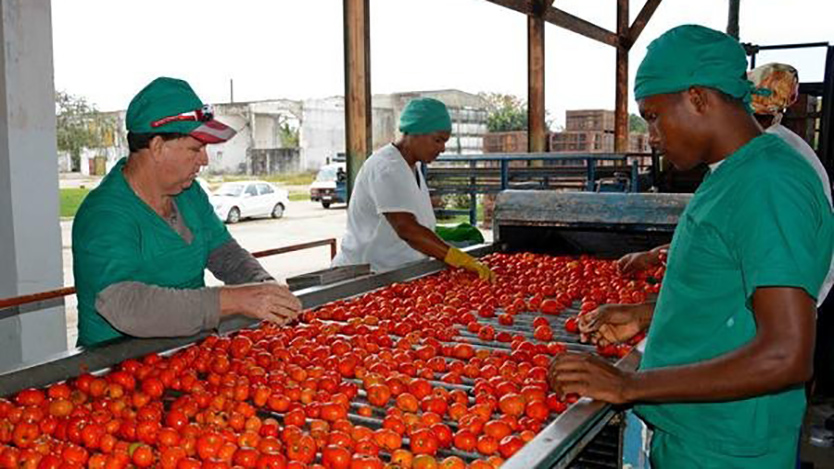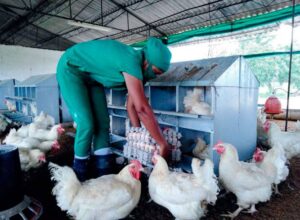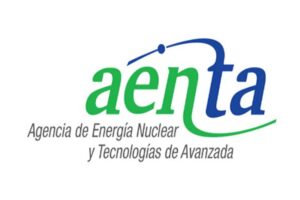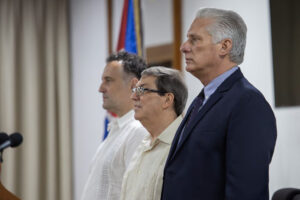Satisfying the food needs of the Cuban population in the current difficult economic and financial scenario is a high priority for the government, and that is why in Ciego de Avila work is being done on the development and implementation of new products to respond to this purpose.
Specialists from the Research Institute for the Food Industry (IIIA) carried out workshops, exchanges and visits to food processing entities in Ciego de Avila on Monday and Tuesday, with the aim of achieving the results of research, development and innovation work and reinforcing integration between scientific centres, universities and production companies.
In this case, they learned about the experiences and interacted with workers and managers of the companies of Dairy Products, Beverages and Soft Drinks (EMBER) and the Vegetable Canning Branch of the province of Avila.
Jesús Rodríguez Mendoza, director general of the IIIA, told the Cuban News Agency (ACN) that during the tour they were able to appreciate the development of new foods from milk by-products in the dairy industry, as well as working on the processing of fruit to take advantage of installed production capacities.
At EMBER, for example, in view of the sugar deficit, they focused on developing products with a low content of the natural sweetener and some options for the optimal use of the allocated alcohols, Rodríguez Mendoza added.
There is a common factor in the work centres visited and that is the desire to do things and look for solutions, which helps us to cooperate and share projects with them, said the director general of the IIIA.
A general policy within the tour is to implement IIIA results focused on the needs of vulnerable groups such as children, pregnant women and the elderly, with specific products, and the researchers saw in Ciego de Avila an important potential to implement them in a short time, using local raw materials.
Likewise, a group of contracts will be signed with several companies in the territory for the implementation of these alternative products, which are part of the sectoral project led by the Ministry of Food Industry and managed by the IIIA.
This is not the whole solution to the country’s food problem, but it is a fundamental palliative, which is why we provide the companies with certain tools to be applied in each place, according to the needs and local resources, said Rodríguez Mendoza.
As part of the visit, the IIIA specialists also visited the Cooperativa de Créditos y Servicios Agroindustrial La Trocha Ceballos, where they learned about the experience of this collective in the processing of cassava, currently affected by the energy and fuel limitations facing the country.




